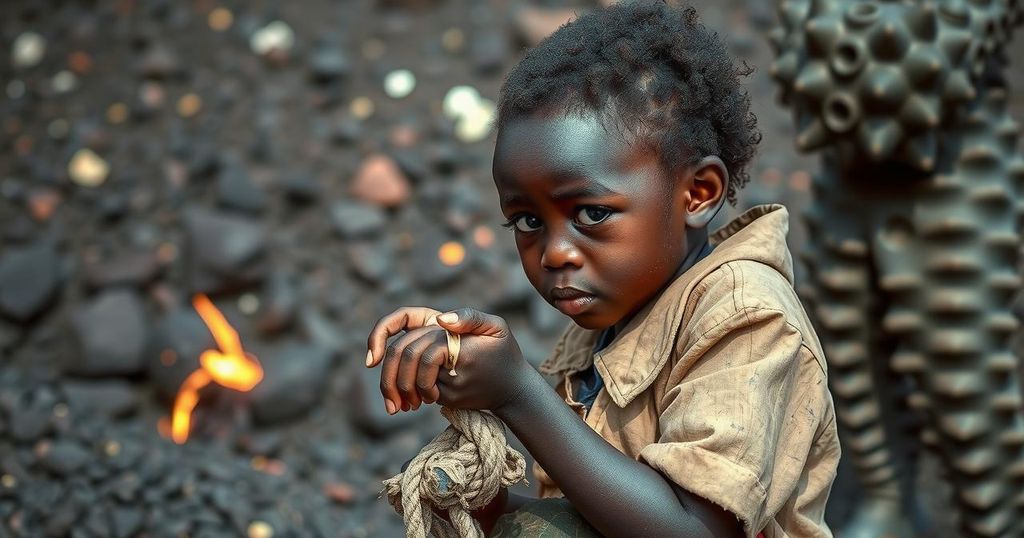ILO Launches GALAB Project to Combat Child Labour in DRC Cobalt Mining
The ILO has launched the GALAB Project in the DRC to combat child labour in cobalt mining, funded by the USDOL. Building on past initiatives, the project aims to strengthen remediation services and improve conditions for over 100,000 artisanal miners. With partnerships from organizations like UNICEF, GALAB seeks to provide educational support, secure stable income opportunities for families, and enhance accountability in the sector, ultimately striving for zero children engaged in mining.
The International Labour Organization (ILO) has officially launched the GALAB Project in the Democratic Republic of the Congo (DRC), with funding from the U.S. Department of Labor (USDOL). This initiative aims to combat child labour within the artisanal cobalt mining sector. The GALAB project continues the efforts initiated by the previous COTECCO Project, targeting the need for enhanced child protection and ensuring compliance with fundamental rights within mining operations.
As the world’s leading cobalt supplier, the DRC faces significant challenges regarding child labour in its artisanal and small-scale mining sector. The GALAB project intends to reinforce the Congolese government’s capacity, aiming to eliminate child labour entirely in the mining environment. The project seeks to create a safe space for over 100,000 artisanal miners who currently work under dangerous and ethically compromised conditions.
The GALAB initiative will focus on developing robust referral and remediation services for children involved in mining. Utilizing a Child Labour Monitoring and Remediation System (CLMRS), the project aims to provide educational and vocational support for identified child labourers while also assisting families in finding sustainable income-generating activities. Collaborating with organizations such as UNICEF and IMPACT Transform will ensure comprehensive support for affected children and their families.
To strengthen oversight and improve mining conditions, the project will enhance training for labour inspectors and promote transparency across the sector’s operations. By fostering public-private partnerships, the GALAB project aims to establish responsible business practices and adhere to international labour standards pertinent to child labour elimination. The initiative will provide training on compliance with national legislation and enhance accountability within the industry.
Highlighting the significance of the initiative, Nteba Soumano, ILO Country Director for the relevant regions, stated that the GALAB project represents a pivotal advancement in protecting children’s rights within the cobalt supply chain. He emphasized its potential impact on transforming the mining sector into a more responsible and sustainable environment for all stakeholders involved.
Child labour is a pressing issue affecting countless children globally, particularly in resource-rich areas such as the DRC, where artisanal cobalt mining is prevalent. Cobalt is essential for modern technologies, yet the mining sector has been plagued by the exploitation of child labourers. Previous efforts, such as the COTECCO Project, aimed to lay the framework for addressing child labour through enhanced child protection and stakeholder accountability. The GALAB project is built upon these foundations to create sustainable change in reducing child labour in cobalt mining and supporting the affected communities.
The GALAB project signifies an essential step toward eradicating child labour in the DRC’s cobalt mining sector. By bolstering remediation services for vulnerable children and engaging various stakeholders, the project aims to uphold fundamental rights, promote ethical practices, and foster collaboration between the public and private sectors. As the project seeks to reduce child labour and improve accountability, its success will be measured by the tangible benefits experienced by children and families involved in the mining sector.
Original Source: www.ilo.org




Post Comment